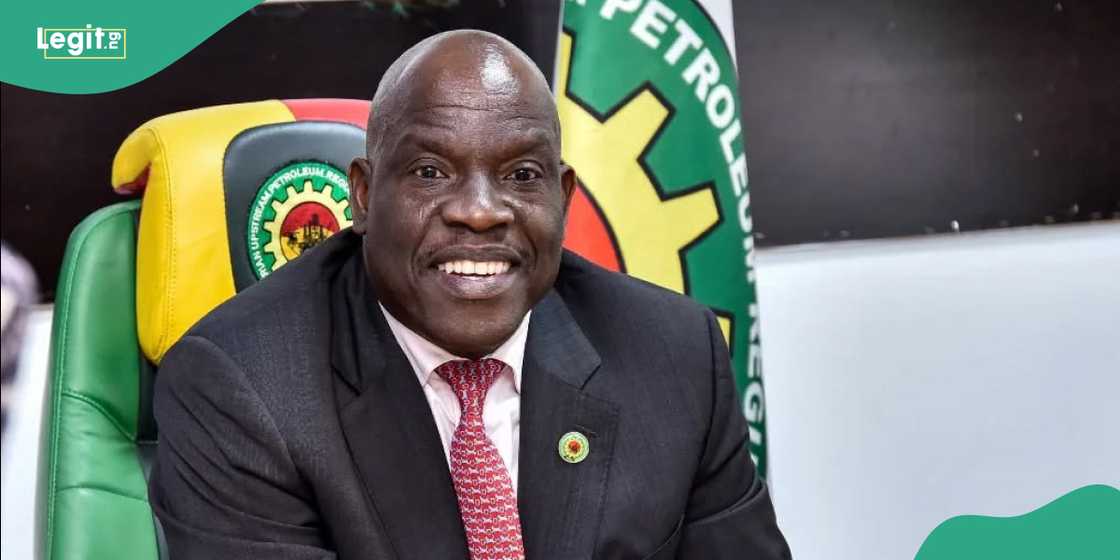Billions Pouring In: How Tinubu's Reforms Are Supercharging Nigeria's Oil & Gas Sector
Gbenga Komolafe, the Chief Executive of the Nigerian Upstream Petroleum Regulatory Commission (NUPRC), has declared that President Bola Tinubu’s reform agenda is fundamentally reshaping Nigeria’s upstream oil and gas landscape, positioning it as a premier destination for global investments.
Speaking at the Africa Oil Week in Accra, Ghana, Komolafe highlighted how the bold policy shifts, anchored in the Petroleum Industry Act (PIA) 2021 and bolstered by presidential executive orders, have ignited a surge in investor confidence, unlocking billions of dollars in fresh commitments.

Source: UGC
Unprecedented investment and growth
Komolafe announced that in 2025 alone, the NUPRC has greenlit 28 new Field Development Plans (FDPs).
These FDPs are projected to unlock an impressive 1.4 billion barrels of oil and 5.4 TCF of gas, adding an expected 591,000 barrels of oil per day and 2.1 BSCFD of gas to Nigeria’s output.
With capital expenditure commitments totalling $18.2 billion, these projects underscore Nigeria's transformation into one of the world's most dynamic and attractive upstream investment frontiers.
This wave of commitment aligns perfectly with Nigeria’s ambitious goal of boosting crude oil production capacity to over three million barrels per day, ensuring robust contributions to national revenue, energy security, and regional growth.
Milestone projects and prospects
The NUPRC chief specifically highlighted significant projects such as the $5 billion Bonga North deep offshore development and the $500 million Ubeta Gas Project as clear indicators of renewed long-term commitments from major global operators.
Looking ahead, additional final investment decisions (FIDs) are anticipated on other critical projects, including the HI NAG Development, Ima Gas, Owowo Deep Offshore, and Preowei Fields.
Beyond new developments, Komolafe revealed that since President Tinubu took office, the Federal Government has approved five major acquisition deals exceeding $5 billion in value.
These transactions have created new avenues for ambitious indigenous players to expand their footprint within the upstream sector, fostering local participation and growth.
PIA: A catalyst for transformation
Komolafe lauded the Petroleum Industry Act for ushering in "a new era of governance, fiscal reform, and institutional realignment," which has successfully repositioned the NUPRC as a forward-thinking regulator. In nearly four years, the Commission has diligently rolled out 24 transformative regulations, with 19 already gazetted to operationalise key provisions of the PIA.

Source: Facebook
Furthermore, a comprehensive Regulatory Action Plan has been unveiled to systematically address bottlenecks, dismantle entry barriers, and ensure transparent licensing rounds.
Tangible results and future vision
The impact of these reforms is already evident. Rig counts, a crucial indicator of upstream activity, have dramatically increased from a mere eight in 2021 to 43 as of September 2025.
Komolafe also pointed to recent bid rounds and concession awards as testaments to the new regime's transparency and competitiveness.
The 57 Petroleum Prospecting Licences awarded in 2022, the 2022 Mini-Bid Round, and the 2024 Licensing Round all attracted "exceptional investor participation" due to clearer terms and wider accessibility.
The Commission deliberately optimised signature bonus requirements and removed barriers to entry, resulting in 27 out of 31 blocks offered in 2024 being successfully taken up.
These strides, Komolafe emphasised, are not merely transactional successes but integral to a broader, long-term vision to establish Nigeria at the core of Africa’s energy future.
He underscored energy security as "the cornerstone of economic growth, national resilience, and shared prosperity across the continent."
As Africa navigates energy transition debates, Nigeria's approach balances sustainability with economic necessity, leveraging its vast hydrocarbon endowment responsibly to fuel industrialisation and poverty reduction while gradually adopting renewable energy.
Industry observers at the Africa Oil Week described Nigeria's presentation as one of the most compelling, acknowledging that the blend of legal certainty, regulatory clarity, and political will is fundamentally reshaping perceptions of the country as a leading oil and gas investment hub.
NUPRC honoured for transparency
Legit.ng earlier reported that Public Space Tracker, a West African organisation, has recognised the Nigerian Upstream Petroleum Regulatory Commission (NUPRC) as the most transparent and outstanding government agency in Nigeria.
This commendation highlights the exceptional leadership of Engr. Gbenga Komolafe, NUPRC's Chief Executive, whose tenure has established new standards for accountability and efficiency in Nigeria's oil and gas sector.
The Public Space Tracker praised NUPRC for its "remarkable openness, policy innovation, and integrity" in managing Nigeria's upstream petroleum resources since Komolafe took office.
Don't miss out! Join Legit.ng's Sports News channel on WhatsApp now!
Source: Legit.ng





